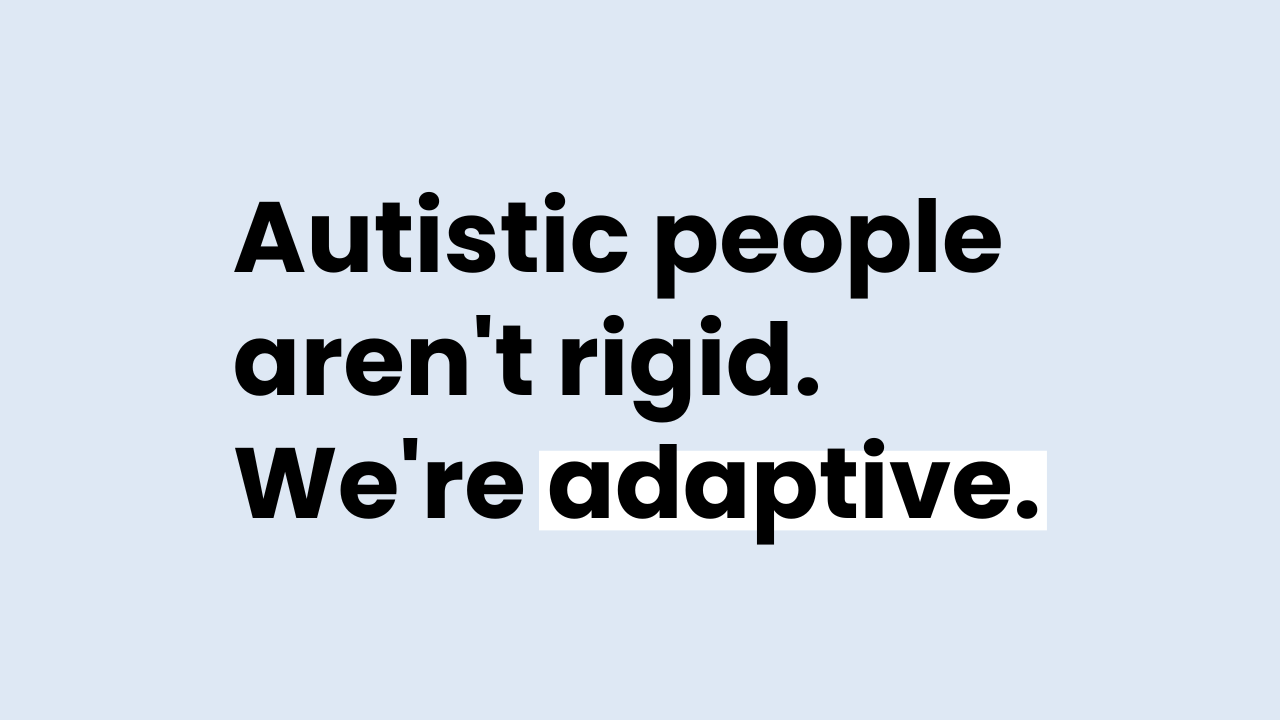Autistic people aren't rigid, we're adaptive
May 14, 2023
👉 Listen to the podcast here 👈
In our society, autism is often associated with rigidity and inflexibility. However, as someone who is autistic and is constantly speaking with other autistic people, I can confidently say that the opposite is true. Autistic people are not inflexible, but rather, we are adaptive!
Autistic people are often seen as having a limited range of interests and being resistant to change. However, autistic people are very open to a wide range of possibilities. We have a curiosity that drives us to explore, learn, and create out-of-the-box solutions.
The reason autistic people develop routines is because we can easily become overwhelmed by the abundance of choices in the world. We want to try everything and experience everything, but don’t know where to start. In an effort to protect ourselves, we may hesitantly try something new, and if that experience proves to be safe, we come to rely on that exact option. This is not rigidity, but rather a coping mechanism to help us navigate a world that can be overwhelming.
Any species' main goal is survival, and that primitive nature is elevated when you're living in a world that wasn't built for you. Autistic people process information differently from neurotypicals, and our brains work in unique ways. However, anyone who engages in a behavior that proves beneficial to survival is actively wiring their brain to repeatedly desire that behavior.
In the case of autism, any behavior that helps us function and feel safe becomes our default. This is one of the reasons eating disorders are so common among the neurodivergent population; our behaviors around food and exercise give us a sense of control in a world that’s out of our control, causing us to rely on the disorder for trust and predictability.
It's essential to note that the routines and behaviors of autistic people are not set in stone. As any species, we are adaptive and can change our behavior if there’s a strong enough reason to. It's just that sudden change can be challenging for us, so we need to approach it in a structured and gradual way. In eating disorder recovery, this means working with someone who understands you and can tailor treatment to your unique needs.
In conclusion, autistic people are not rigid or inflexible. We are adaptive and resourceful, finding ways to cope with a world that wasn’t built for us. Our habits and routines are not a weakness but a strength that helps us navigate unpredictable circumstances. And that very same strength can be harnessed to fully recover from disordered eating!
If you want to learn how I fully recovered from anorexia as an autistic person, grab a copy of my book Rainbow Girl!



